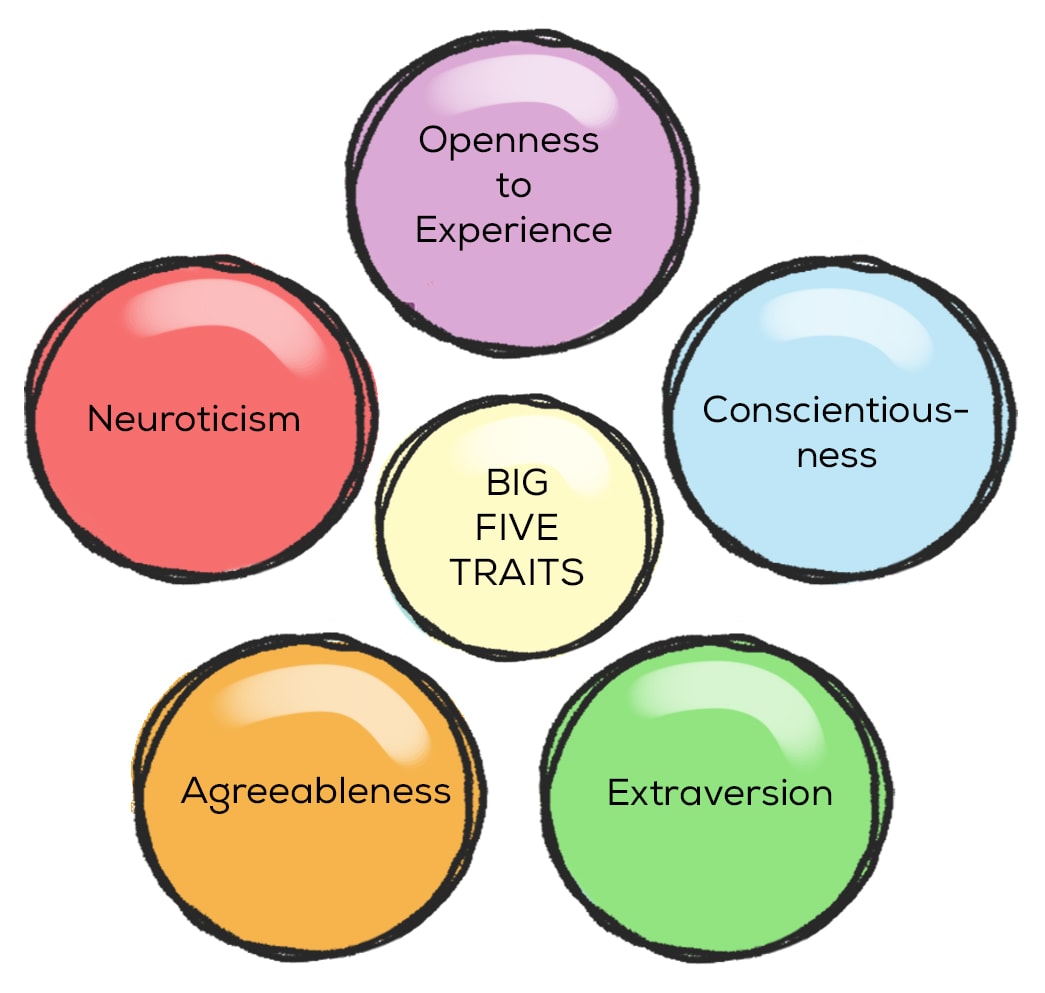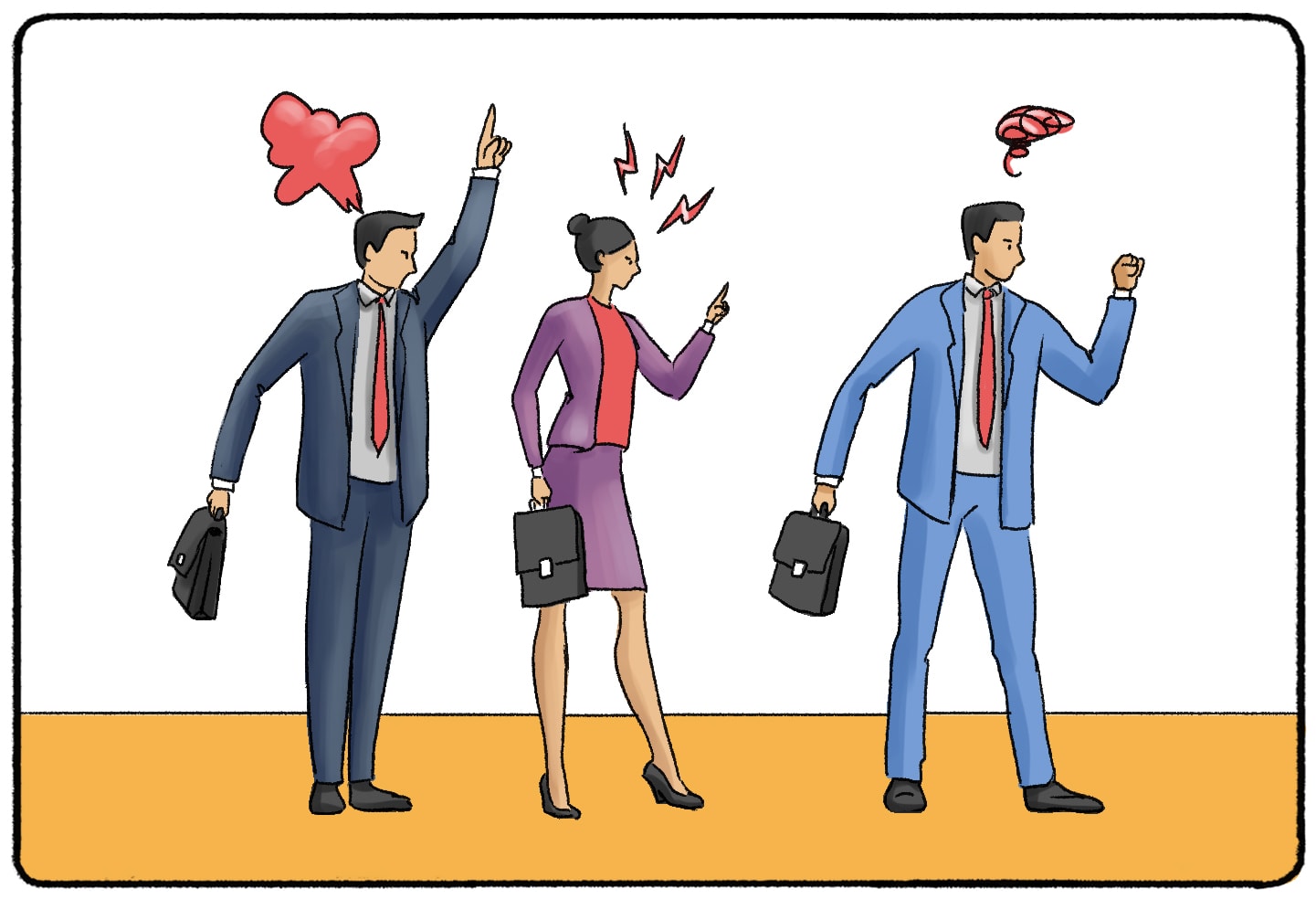Personality and politics - how do they go together? Would you be surprised if I told you I could guess your political views with just some personal information?
You might already know that personality traits greatly impact behavior and judgment. People relate to others who have similar personalities and hold similar judgments. If people see themselves in a person on the campaign trail, they are more likely to trust that person and even vote for them as president.
Once you take a Big Five personality test, you might start to see connections between your personality traits and the views you hold, and the votes you have cast.
Let’s discuss these connections and how you can use personality traits to predict someone’s political stance.
Political Involvement and Big Five Traits

We won’t dive right into the 2016 election just yet. I want to start off by talking about how your personality influences your political involvement and activity.
People who score high in extraversion are typically more likely to participate in marches, rallies, and protests involving big groups.
People with a higher level of conscientiousness are also more likely to appear for jury duty but less likely to vote. Why? Experts believe that more conscientious people tend to believe that their single vote is unlikely to make a difference. Since Jury duty is a legal requirement, they are much more likely to follow the rules.
Another interesting thing that can influence your political views is if you’re infected with a parasite. People with parasites in them want to prevent more parasites from getting in, which subconsciously increases their level of conscientiousness, thus making them more conservative. Studies have also found that the presence of parasites or famine in an area is a positive predictor of people in that area starting to support the creation of an authoritarian system of government. People with parasites in them have also been found to be more xenophobic or against immigrants.
American Party and Ideology Affiliation
Do your personality traits influence whether you are more conservative or liberal, Republican or Democrat? Researchers have found trends that connect the two.
For example, people who score high in conscientiousness tend to strive for more order, a tendency associated with conservative values; they like rules. Conversely, people with high creativity and openness to experience tend to be more liberal.
Other studies have found less significance behind your level of extraversion and neuroticism regarding your political views.
The 2016 Election
How do Big Five scores match the results of the last Presidential election?
In the 2016 United States presidential election, people with a high level of openness to experience and neuroticism tended to vote for the more liberal Hillary Clinton.
People with high extraversion and conscientiousness tended to vote for the more conservative Donald Trump.
There were no significant tendencies for people with a high level of agreeableness, but in general, people who scored high for agreeableness were more likely to vote for Trump.

How Personality and Environment Influence Political Opinion
Of course, there are a lot of factors that go into how we form our political opinion. Life events, where we live, and the media we consume all play into a political ideology. But personality traits can influence the factors that influence our political ideology.
To demonstrate this, I want to talk about how personality traits influence where you choose to work. Workplace culture can have a big impact on political opinion. Have you ever noticed that the people around you and working with you often share your political views?
Team leaders are generally discouraged from showing political bias when choosing who to hire. Still, they are encouraged to pick people they believe to be a “good fit” for their company’s work environment. Regarding “fitting in” with workplace culture, the applicant’s personality traits are a big indicator of what they might want and seek out. These are the same traits that can influence political opinion.

Examples of Personality and Politics
Let me give you some examples of this.
Extroverts
Extroverts prefer a more public work environment where they can interact with other workers often and benefit from different stimuli. Meanwhile, introverts and more reserved individuals prefer more private work environments, like laboratories or engineering work, where they don’t need to interact with fellow workers.
People who score high in extraversion typically work best in an environment comfortable with ambiguity. Team leaders may look at a problem in many different ways and ask for multiple solutions to one question. The people who work well in this environment also tend to be more adventurous. The same preferences apply to people who are more liberal. As mentioned earlier, liberal people tend to be more open to experience.
Conscientiousness
Conversely, people who score high in conscientiousness tend to like a single answer for each problem. They also tend to be more cautious and risk-avoidant. Typically, these personality types tend to be more conservative.
People who lean to the left (aka, are more liberal) are more comfortable questioning and challenging authority. They feel more comfortable in a work environment that encourages this behavior and has a looser hierarchical structure. Liberals and people who score high in openness to experience tend to thrive in an environment that heavily focuses on the present future.
More conservative individuals thrive in a past-present-oriented work environment. Experts believe this trend is explained by a conservative’s general inclination towards stability and tradition.
Traits outside the Big Five also influence success in different workplace cultures.
Cooperation
People high in cooperation, trust, and altruism (aka the desire to help others), tend to prefer a more collectivist work culture, which is based around assisting other workers. A collectivist work culture suits people who find it rewarding to help others in their group succeed. Similarly, people who lean to the left are likelier to thrive in this culture.
Meanwhile, people who score low in these traits and have more conservative views tend to prefer an individualist work culture, where they can do their work without worrying about sharing with, helping, or trusting others.
Assertive
If you’re assertive and active, you’re more likely to succeed in a similarly high-achievement and competitive environment. If you’re more contemplative and like to take things at your own pace, you’re more likely to flourish in an environment where you can take more time, experiment, and learn from mistakes.
Wrapping It Up
So your personality defines what kinds of workplace cultures you’d like to apply to. Since others with similar personalities will be attracted to similar jobs and cultures, you will likely interact with like-minded people at work. You may also find that you have come from different parts of the country or the world to live in an environment and work in a culture that fits your personality.
Research has shown the link between how geographic location, workplace culture, and similar factors influence political opinion.
If you’d like to see how your personality is linked to your political views, I’d offer you a friendly challenge. Click the link in the description and take my new personality quiz. I’ll bet I can guess your political views in your results.
Don’t believe me? Take the quiz and see for yourself! Let me know in the comments if my quiz guessed your political opinions!
References:
"An Analyses of Political Discrimination in the Workplace - Emory Law." http://law.emory.edu/ecgar/perspectives/volume-5/perspectives/google-political-discrimination-workplace.html. Accessed 23 Feb. 2019.
"Pathogens and Politics: Further Evidence That Parasite Prevalence ...." 1 May. 2013, https://www2.psych.ubc.ca/~schaller/MurraySchallerSuedfeld2013.pdf. Accessed 18 Feb. 2019.
"Personality Traits and Workplace Culture - A Peer-Reviewed ...." https://gbr.pepperdine.edu/2010/08/personality-traits-and-workplace-culture/. Accessed 16 Feb. 2019.
"The Association between Personality Traits and Voting Intentions in ...." 23 Sep. 2016, http://evidencebase.usc.edu/the-association-between-personality-traits-and-voting-intentions-in-the-2016-presidential-election/. Accessed 18 Feb. 2019.
"Too much discipline on the left, too little on the right | askblog." 5 Dec. 2017, http://www.arnoldkling.com/blog/too-much-discipline-on-the-left-too-little-on-the-right/. Accessed 18 Feb. 2019.
"Your personality plays a role in your political behavior, author says ...." 27 Jul. 2010, https://news.illinois.edu/view/6367/205571. Accessed 18 Feb. 2019.
